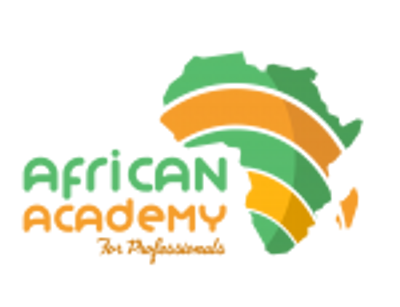Description
Introduction:
Welcome to our transformative course on "Communications in the Humanitarian Context." This program is designed to empower participants with the skills and understanding necessary to navigate and enhance communication within humanitarian eforts. Our mission is to foster a community of innovative, compassionate communicators who can amplify voices and bridge gaps in times of need. Through commitment and collaboration, we can make a profound diference. Join us on this journey toward meaningful change.
Day 1: Foundations of Humanitarian Communication
Lesson 1: Understanding Humanitarian Principles
- Explore the core humanitarian principles: humanity, neutrality, impartiality, and independence.

- Discuss the importance of these principles in communication.

- Analyze real-world case studies where communication upheld or undermined these principles.
Lesson 2: The Role of Communication in Humanitarian Eforts
- Delve into the vital role communication plays in crisis response.

- Examine various communication channels and their efectiveness in diferent contexts. Refect on metaphorical bridges—connecting communities, crossing cultural divides, and linking resources with needs.
Day 2: Communication Strategies and Planning
Lesson 3: Crafting Efective Communication Strategies
- Learn how to develop clear, concise, and strategic communication plans.

- Understand the importance of tailoring messages to diverse audiences.

- Create a mock communication strategy for a hypothetical crisis scenario.
Lesson 4: Crisis Communication and Media Relations
- Understand the nuances of communicating during a crisis.
- Explore best practices for engaging with media outlets and journalists.

- Discuss the anaphora of "inform, reassure, inspire" as a guiding principle.
Day 3: Cultural Sensitivity and Inclusivity
Lesson 5: Embracing Cultural Sensitivity in Communication
- Discover the signifcance of cultural awareness in humanitarian contexts.
- Learn techniques to ensure messages are culturally inclusive and respectful.

- Participate in role-playing exercises to practice adaptive communication strategies.
Day 4: Intermediate Techniques in Humanitarian Communication
Lesson 6: Advanced Messaging and Storytelling
- Explore the power of storytelling in humanitarian communication.

- Develop narratives that highlight resilience, hope, and shared humanity.
- Craft a compelling story that conveys the mission and values of a humanitarian organization.
Lesson 7: Utilizing Digital Tools for Impact
- Learn about innovative digital tools and technologies that enhance communication.

- Analyze the benefts and challenges of social media, mobile apps, and other platforms in crisis settings.

- Design a digital campaign that promotes awareness and engagement.
Day 5: Building Networks and Evaluating Impact
Lesson 8: Collaboration and Partnership Building
- Understand the importance of building strong networks and partnerships.

- Identify strategies for fostering cooperation among diverse stakeholders.

- Engage in group activities to simulate collaborative communication eforts.
Lesson 9: Measuring Communication Impact
- Learn techniques for evaluating the efectiveness of communication initiatives.

- Discuss key performance indicators and feedback mechanisms.
- Refect on the metaphor of the ripple efect—how efective communication can create widespread, positive change.
Conclusion:
Thank you for embarking on this educational journey with us. By embracing the principles and techniques shared in this course, you are now equipped to communicate with empathy, clarity, and innovation. Together, let's continue to build bridges, strengthen communities, and inspire hope through the power of communication.
We look forward to receiving your application. The deadline for applications is Online [January; 11, 2025]. Offline: [January; 18, 2025].
Further Details
Duration: 5 Days
Class: 5 Days (6:30pm – 9:30)
Number of Participants: 20 Participant Only in class while online more than that number (Register Early -->> Click Here )
Online class stars and ends: [11th January 2025 to 15th January 2025].
Offline class stars and ends: [18th January 2025 to 22nd January 2025].
FEE: Companies/Organizations: $25.00, Individual: $20 & Students: $15.00 (Must have an ID)
(Inclusive Trainer Incentive, Refreshment, Papers & Certificates). For groups of 5 and more, 1 will be free.
Bank Account Details
Deposit to Bank: Dahabshiil Bank
Account Name: African Academy for Professionals
Account Number: HRGD75468
Zaad Number: 0634730610 African Academy for Professionals
Contact Details:
Mobile Office: +252634730610
Office Line: 523851
Registration Link: https://forms.gle/1NeQvqfhV7yAEW2e6


